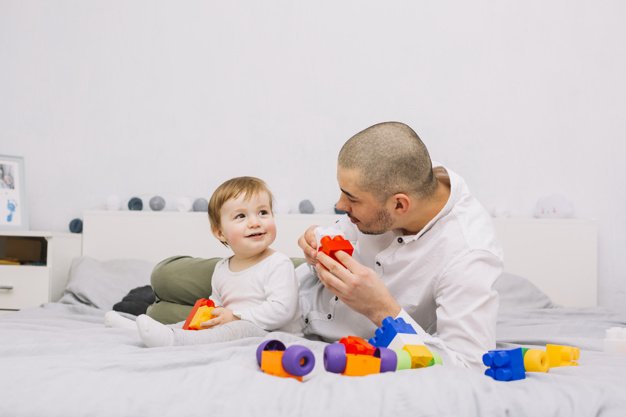Having a speech disorder can impact a child’s life in many ways. Speech and language disorders can affect a child’s social development and relationships. It can impact their self-confidence and emotional well-being and their ability to learn.
Luckily, early intervention methods are available to help children with speech problems.
Speech therapists help struggling children to reach their full potential.
With the help of a professional therapist, speech often improves. Speech therapy can even help children to overcome speech deficiencies completely. At Better Speech you can get a free consultation to get your questions answered about the language development of your child and to address any possible speech disorders early on.
Speech & Language Disorders in Children:
Speech and language disorders in children are not uncommon. According to the National Institutes of Health, one in 12 children in the U.S. has had a speech, language, or swallowing disorder over the past 12 months.
Many parents that identify their children to be specially-abled often seek the assistance of special needs school singapore to help them with speech and language disorders.
If you’re a parent of a child with a speech disorder, you may feel helpless. Speech disorders in children can be frustrating for the whole family. But, there is help available.
How Can Speech Therapists Help Children with Speech & Language Disorders?
Research has shown that speech therapy is an effective treatment for speech disorders. It’s most helpful when continued for six months or longer.
Today, there are many treatment options for children with speech and language disorders. Often, school systems have speech therapists to work with their students.
Parents can also access online therapeutic resources, such as those offered by Global Teletherapy.
Also, most professional therapists accept health insurance plans to cover their services.
Here are some of the ways that speech therapists can help your child.
Fluency:
Stammering or stuttering is the most common fluency disorder. Children who suffer from stuttering may experience embarrassment due to their disorder. Others may even ridicule them because of their fluency issues.
Speech therapists can help children learn strategies to cope with their disorder. They can help your child deal with emotional consequences, and deal with unpleasant reactions from others.
They can also help your child learn how to control the flow of their words. This helps make their disorder less noticeable. Sometimes, it’s possible for therapists to help children overcome fluency disorders.
Voice Disorders:
When a child has a voice disorder, their speech may be difficult for others to comprehend. Often, the child will start mumbling after they begin speaking.
A speech therapist can help children learn to practice awareness of their speaking habits. They will help your child learn to complete sentences clearly. And, they can help make the connection between one’s thoughts and their spoken words.
Better yet, speech therapists know special activities to help children with special needs. They’re also aware of current learning trends for these children. And, they understand that it’s important to make learning fun for your child.
Articulation:
Many children have difficulty pronouncing words. Some even have issues with words that are familiar, or that they commonly use in conversation.
Articulation difficulties can lead to many social and emotional issues if not addressed.
Speech therapists can teach children strategies to discern and correctly pronounce sounds. This helps children gain confidence. It also helps them to feel comfortable speaking to others in social circumstances.
Want More Tips for Helping a Child with Special Needs?
Speech therapists can be life-changing in the lives of children with special needs. Like all children, those with special needs desire acceptance and understanding from others.
Want more tips for parenting a child with special needs?
Check out this post for more tips to help you support friends and family members with special needs!
Read Also:






















